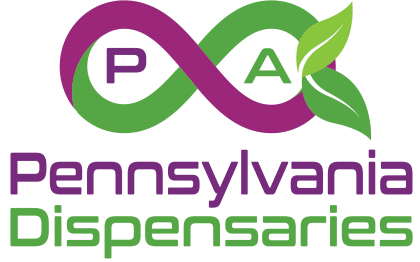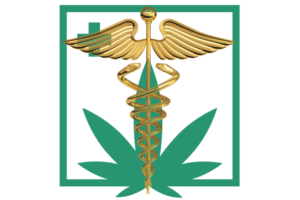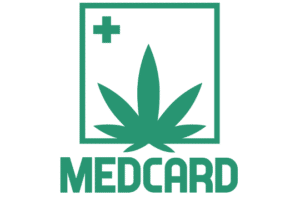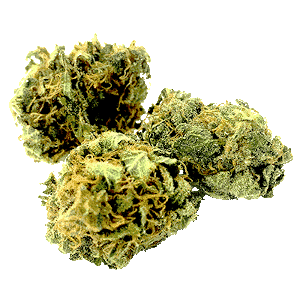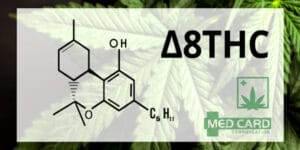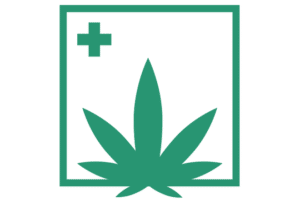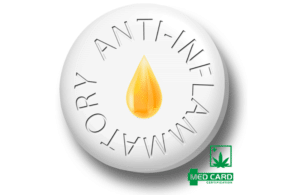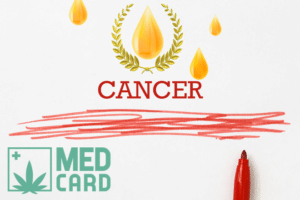Getting a Marijuana Card in Pennsylvania | 2024 Patients Guide
Medical Marijuana in Pennsylvania
Getting a Marijuana Card in Pennsylvania
The annual state fee for a medical marijuana card in Pennsylvania is $50 for new applications and renewals. However, if you are on CHIP, SNAP, Medicaid, WIC, or PACE/PACENET then you can obtain a free medical marijuana card if you qualify. You’ll need to renew the card each year. Currently, the cost of a medical marijuana card or products is not covered by insurance.
- Consult with a qualified physician registered with the Pennsylvania Medical Marijuana Program.
- If diagnosed with a qualifying condition, the physician will certify your eligibility for a marijuana card.
- Apply for a medical marijuana ID card through the Pennsylvania Medical Marijuana Registry.
- The current cost to get certified or renew through a participating MedCard doctor is $99.
Upon receiving your medical marijuana certification, the next step involves uploading it to the state’s system.
For potential medical marijuana patients in PA, we makes it easy to connect with a recommending marijuana doctor online to get or renew your MedCard. To get started simply fill out the patient registration form and press submit. See if you qualify today! Legal Residents Only.


MedCard Registration Form

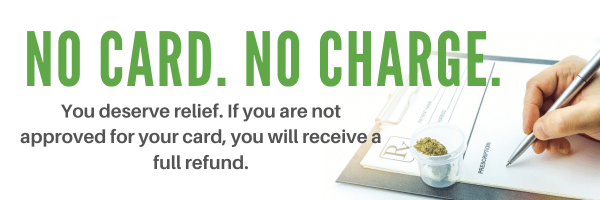
Benefits of Medical Marijuana
- Pain Management: Medical marijuana is well known for its pain-relieving properties, offering comfort to patients dealing with chronic pain conditions, arthritis, migraines, cancer, and more.
- Nausea and Appetite Stimulation: Patients undergoing chemotherapy and other treatments often struggle with loss of appetite and chronic nausea. Medical marijuana can ease these symptoms.
- Anxiety and Stress Relief: Medical cannabis often provides relief from anxiety, stress, and symptoms of PTSD.
- Seizure Control: Medical marijuana has shown promise in reducing the frequency and intensity of seizures in patients with epilepsy and other seizure disorders.
- Muscle Spasm Relief: Patients with multiple sclerosis, Parkinson’s disease, or spinal cord injuries can find relief from muscle spasms and stiffness through medical cannabis.
Obtaining Access to Medical Marijuana in Pennsylvania
The first step to becoming a part of the PA medical marijuana program involves creating a profile on the Pennsylvania Medical Marijuana Program Registry. Upon registration, the subsequent step entails visiting a physician authorized by the Pennsylvania Department of Health. The purpose of this visit is to confirm your eligibility for the program based on one of the state’s qualifying conditions.
Qualifications for Medical Marijuana in Pennsylvania
Individuals diagnosed with specific severe medical conditions are eligible for medical marijuana in Pennsylvania. Once you confirm your condition’s presence on the MMP’s approved list, you need certification from a physician trained and approved by the PA Department of Health. The list of approved physicians is accessible on the Department of Health’s official website.
Visiting Dispensaries
- Once approved, visit a licensed PA dispensary with your medical marijuana ID card.
- Knowledgeable staff and budtenders at dispensaries can assist in selecting appropriate strains and products to meet your needs.
Understanding Costs and Taxes
Cost of Medical Marijuana at Dispensaries:
- Medical marijuana prices vary based on the type of product and its potency.
- Dispensaries often offer a range of products, accommodating different budgets and preferences.
Taxes and Legal Regulations
- Pennsylvania does not impose a sales tax on medical marijuana purchases, providing patients with financial relief when acquiring their prescribed cannabis products.
- Patients should familiarize themselves with state regulations to ensure compliance with possession limits and other legal requirements.
Pennsylvania Medical Marijuana Purchase & Possession Limits
Patients enrolled in Pennsylvania’s medical marijuana program have the liberty to purchase up to 192 Medical Marijuana Units during a 90-day period.
These units comprise:
- 3.5g of medical marijuana flower
- 100mg of THC-infused products (e.g., pills, capsules, oils, liquids, tinctures, or topicals)
- 1g of medical marijuana concentrates
Patients are strictly limited to possessing a maximum of 192 Medical Marijuana Units at any given time.
Usage Regulations in Pennsylvania
Medical marijuana products in Pennsylvania can solely be consumed on private property, such as residences, backyards, or any privately owned area secluded from public views.
Usage of medical marijuana is strictly prohibited in the following scenarios:
- Public or federal land.
- Inside any motor vehicle.
- Presence in the vicinity of a minor.
- While traveling across state lines.
One thing to note is that businesses, landlords, and specific municipalities may enforce additional regulations concerning the possession and consumption of medical marijuana. It is imperative to review the regulations applicable to your location before engaging in marijuana consumption.
Distinction Between Medical and Recreational Use
Marijuana Possession Limits in Pennsylvania
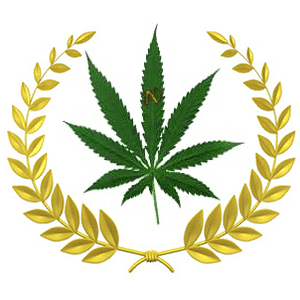
Qualifying Conditions for Medical Marijuana
Pennsylvania has recently expanded its list of qualifying conditions for MMJ cards, making more people eligible for medical marijuana. Even if you didn’t qualify in the past, it’s worth checking again to see if you might now qualify. Keep an eye out for updates, as the list of qualifying conditions may continue to grow.
Currently, qualifying conditions for medical marijuana in PA include:
- Amyotrophic lateral sclerosis
- Anxiety disorder(s)
- Autism
- Cancer
- Cancer remission therapy (newly added)
- Chronic pain
- Crohn’s disease
- Damage to nervous tissue in the central nervous system
- Dyskinetic/spastic movement disorders
- Epilepsy
- Glaucoma
- HIV/AIDS
- Huntington’s disease
- Inflammatory bowel disease (IBD)
- Intractable seizures
- Multiple sclerosis (MS)
- Neurodegenerative diseases
- Neuropathic conditions (newly added)
- Opioid use disorder (for which conventional treatments alone are not adequate)
- Parkinson’s disease
- PTSD
- Sickle cell anemia
- Terminal illness
- Tourette’s syndrome
Follow All PA Laws for Medical Marijuana
Even with an MMJ card, specific regulations remain in place to ensure safety.
Some essential PA MMJ restrictions include:
- Consumption is limited to homes or private residences, with rare on-site workplace consumption permitted by employers.
- Transportation of medical marijuana in a closed, sealed container stored out of reach within state lines.
- Cultivating your own plant is illegal in PA.
While understanding how to access MMJ in Pennsylvania may take time, it should ultimately be a straightforward process once you establish a routine. Choose a dispensary with streamlined systems to make your MMJ product acquisition as convenient as possible.
Pennsylvania’s MMJ patients have many options, but not all dispensaries offer the same quality.
Frequently Asked Questions About Medical Marijuana & Marijuana Cards in Pennsylvania
What is the process for obtaining a medical marijuana card in Pennsylvania?
- To obtain a medical marijuana card in Pennsylvania, you must first create a profile on the Pennsylvania Medical Marijuana Program Registry. After registration, visit a physician approved by the Pennsylvania Department of Health to confirm your eligibility based on qualifying medical conditions. Once certified, upload the necessary documents to the state’s system and pay the $50 fee to receive your medical marijuana card.
What medical conditions qualify for a medical marijuana card in Pennsylvania?
- Pennsylvania recognizes a range of medical conditions for medical marijuana eligibility. These include but are not limited to chronic pain, cancer, epilepsy, PTSD, Crohn’s disease, and multiple sclerosis. The list of qualifying conditions is often updated, so stay up to date on the qualifying conditions by visiting the Pennsylvania Department of Health.
How much medical marijuana can I possess and purchase in Pennsylvania?
- According to recent updates in Pennsylvania’s medical marijuana laws, patients are allowed to purchase up to three months’ worth of medical marijuana from their licensed dispensary. This includes specific quantities of medical marijuana flower, THC-infused products, and concentrates.
Where can medical marijuana be consumed in Pennsylvania?
- Medical marijuana products in Pennsylvania can only be consumed on private property, including homes, backyards, or any privately owned area that is out of view of the public. Consumption in public places, motor vehicles, around minors, or on federal or public lands is prohibited. Employers can allow on-site consumption, but this is rare and subject to each employer’s discretion.
Are there any tax implications for purchasing medical marijuana in Pennsylvania?
- Pennsylvania does not impose a sales tax on medical marijuana purchases. Patients can acquire their prescribed cannabis products without additional tax burdens, making it more financially accessible to everyone.
Can I grow my own medical marijuana in Pennsylvania?
- No, it is illegal to grow marijuana for personal or medical use in Pennsylvania. Cultivating cannabis plants, even for medicinal purposes, can lead to criminal charges. You can only obtain medical marijuana from state-licensed cannabis dispensaries.

